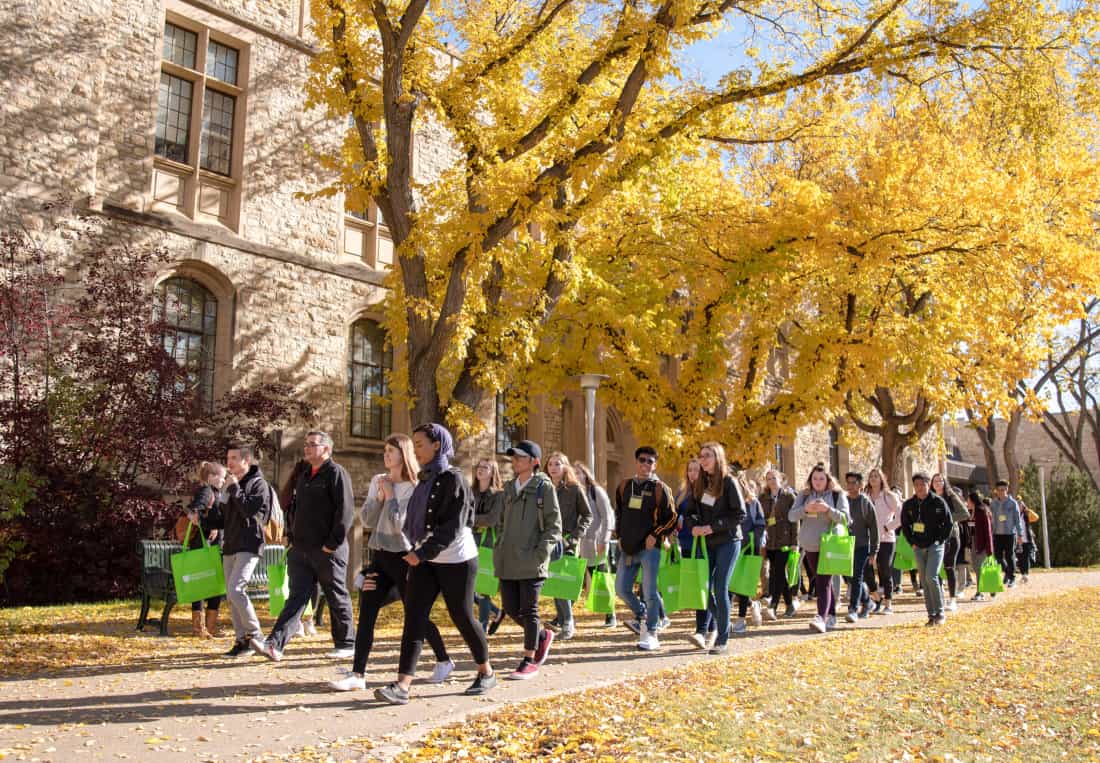
The University of Saskatchewan is preparing new programs and an enhanced curriculum. The plans outlined in the operations forecast are contingent on receiving $15 million for 2019-2020 or $5 million over three years from the provincial government.
The new programs will be for biomedical sciences, engineering and computer sciences to promote interdisciplinary studies between colleges on campus. Current internship and co-op programs will be expanding to better prepare career-ready U of S graduates for Saskatchewan’s businesses and industries.
Alongside the new programs will be a “learning outcomes based” curriculum framework that will be implemented in all colleges, which the College of Arts and Science has already implemented. According to Anthony Vannelli, U of S provost and vice-president academic, this type of framework is mandated in professional programs but not in nonprofessional programs, which will be changed.
“If you are in engineering, in medicine [or] in law, those disciplines … require that the students that come out … all have achieved the outcomes as professionals … to make sure that the individuals that are dealing with the public are able to achieve those objectives at the highest level, … but we are putting that on all professional and non-professional programs,” Vannelli said.
Vannelli said this framework came from the university’s Learning Charter, in which the five pursuits are tied to learning outcomes.
“When you go deeper into each of these pursuits, you see the aspirations we have for what education and development look like for students. Learning outcomes can be tied directly to all of these pursuits,” Vannelli said in an email to the Sheaf.
These five value-based pursuits are as follows: the pursuit of truth and understanding; the pursuit of knowledges, where knowledges refer to the importance of Indigenous teachings and world views among others; the pursuit of integrity and respect; the pursuit of skills and practices; and individual and community pursuits.
The Learning Charter is unique to the U of S as it reflects the university’s commitment to a diverse cultural community. When asked about the quality of the current curriculum, Vannelli says that it is the strongest curriculum and comparable to other universities.
“The current curriculum that we have is one of the strongest curriculums in all disciplines across [the] university and comparable with other universities… Sometimes, they are a challenge because we are dealing with budget realities, so sometimes, the colleges can’t provide all the choices, but there’s absolutely a rich spectrum that is there,” Vannelli said.
For engineering, part of this new approach involves redesigning the first-year program focusing on students needs to succeed. Suzanne Kresta, dean of the College of Engineering, says that this revamped plan will encourage team building and collaborations.
“Our first-year program is under a complete redesign right now that is a very learnercentred approach so that we can see where people’s knowledge is when they come into the university [and] offer … some catch up time for people that are missing pieces so that everybody starts their courses from the same base,” Kresta said.
The first-year course for new engineering students will ensure a solid learning foundation by changing the way that they approach learning.
“We’ve got a lot of opportunities for students to work in teams and help each other out, to the point that we even have a module in January that’s about how [to] do peer-to-peer teaching,” Kresta said.
Vannelli says that, if the university does not receive the proposed grant of $15 million, which will be presented by the Minister of Finance Donna Harpauer on March 20, they will adjust their budget to maintain a high-quality student learning experience. They will also be looking at potential donors such as alumni to guarantee the implementation of these plans.
“I think the plan is, if we can’t get the full funding, … then you adjust the scale [for] what we can achieve [to] provide the student learning experiences and spaces,” Vannelli said. “I’m hopeful in the discussion with the government. It may not come out of this budget but over the next one to two years.”
—
J.C. Balicanta Narag / Outreach Director
Photo: Riley Deacon / Photo Editor
Leave a Reply